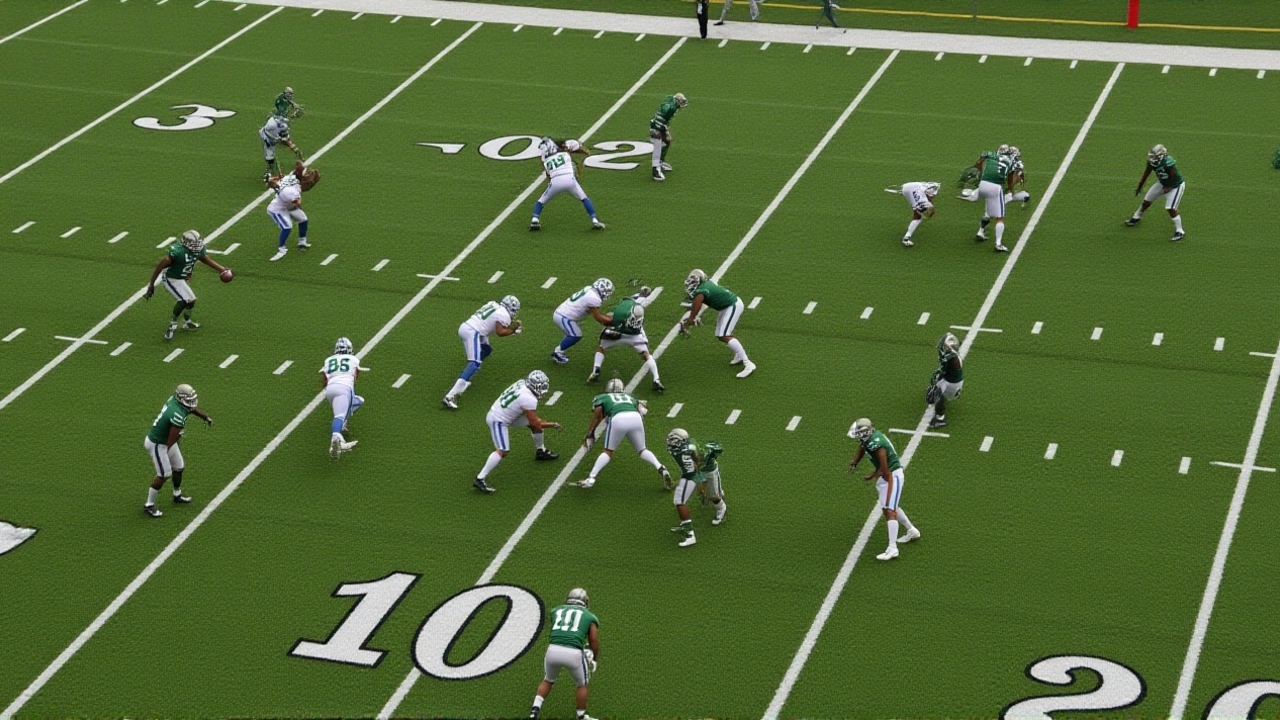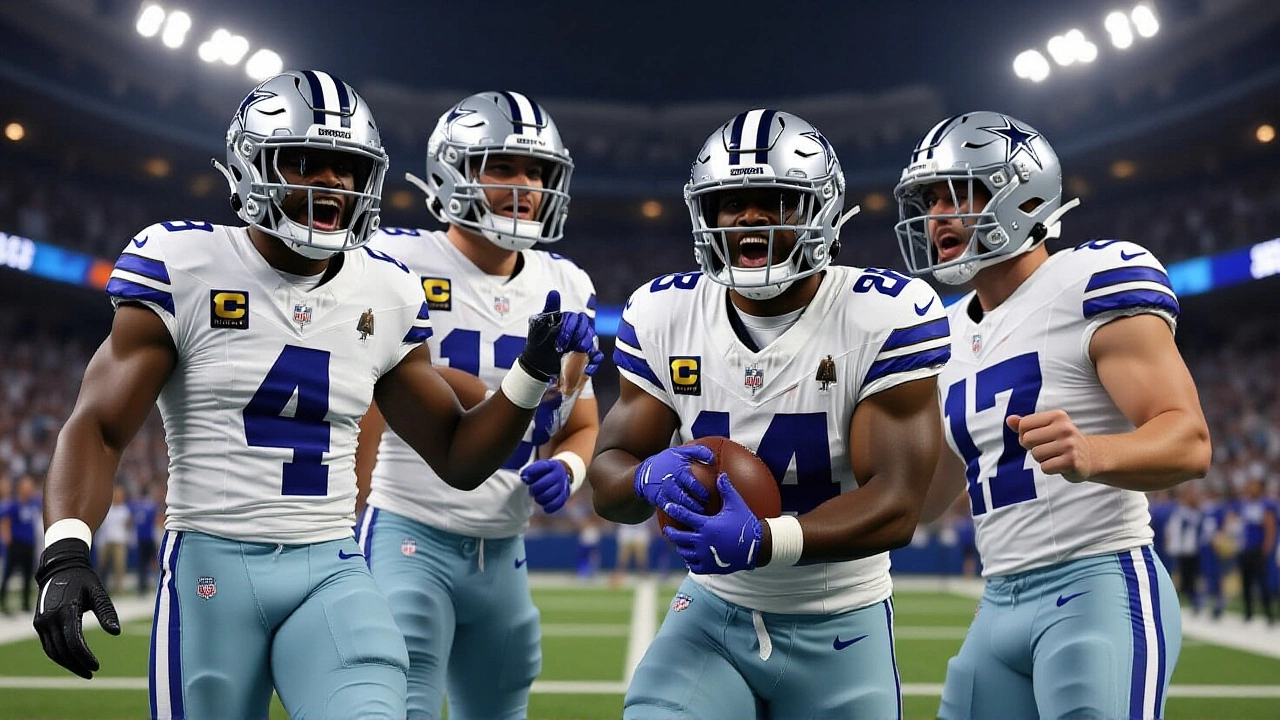Marshawn Kneeland was just 24 years old when he was found dead in Frisco, Texas, with a self-inflicted gunshot wound—hours after fleeing a traffic stop that turned into a desperate, hours-long search. The Dallas Cowboys’ young defensive end, drafted in 2023, didn’t just vanish. He was actively sought by law enforcement, his vehicle crashed, and his final moments were spent alone, out of sight, in the dark. The tragedy unfolded just before 2 a.m. on November 6, 2025, and the silence since has been louder than any press release.
A Night That Unraveled
It started as a routine traffic stop. Texas State Troopers pulled Kneeland over on the evening of November 5, 2025, for an unspecified violation. He didn’t stop. Instead, he sped away. What followed was a brief, high-speed chase that ended when his vehicle crashed near the outskirts of Frisco. He bolted on foot, disappearing into the night. The Frisco Police Department, led by Chief Danny Cullinan, joined the search. Dispatch audio, later released by NBC News, captured the moment officers found him: "JUST PAST 130, HE WAS FOUND WITH WHAT FRISCO POLICE ARE CALLING AN APPARENT SELF-INFLICTED GUNSHOT WOUND. STATE TROOPERS CALL IT A SELF-INFLICTED GUNSHOT WOUND." No weapon was recovered at the scene. No note. No public sign of crisis—until now."He Was More Than a Gifted Athlete"
The family’s statement, issued the same morning the Cowboys confirmed his death, was simple. Raw. And devastating: "He was more than a gifted athlete." It was the only words they offered. No funeral plans. No demands for answers. Just that quiet, heartbreaking acknowledgment that behind the jersey, the highlights, the 6’3”, 270-pound frame that dominated the defensive line, was a young man who carried invisible weight. Friends had reportedly reached out to authorities days before the incident, expressing concern for his mental state. That detail, buried in NBC’s report, is the most chilling part. Someone noticed. Someone cared. And still, he slipped through.The Cowboys and the Silence
The Dallas Cowboys, the franchise founded in 1960 and owned by Jerry Jones, posted a one-line obituary on dallascowboys.com at 9:02 a.m. on November 6: "Marshawn Kneeland passes away at age 24." No tribute video. No moment of silence announced. No mention of mental health resources for players. Just the facts. And that’s what makes it sting. The NFL headquarters in New York City hasn’t issued a single word. Not even a condolence. Meanwhile, the league’s own Players Association offers mental health support—but whether Kneeland ever accessed it remains unknown. What’s clear: the system didn’t catch him.
Why This Matters Beyond Football
Kneeland was a second-round pick. He played 24 games over two seasons. Not a star. Not a household name. But he was one of 1,700+ players in the NFL—and one of countless young men in professional sports who are expected to be tough, unbreakable, relentless. The pressure to perform, to stay silent, to never show weakness, is crushing. And it’s not new. In 2020, former New Orleans Saints linebacker Stephone Anthony died by suicide at 28. In 2022, former Minnesota Vikings linebacker D.J. Wonnum spoke publicly about his own mental health struggles after his career ended. In 2023, former Pittsburgh Steelers offensive lineman Trai Turner said he once considered taking his life after a concussion. These aren’t outliers. They’re the tip of a silent iceberg. The NFL has programs. They have hotlines. They have counselors. But if a player is afraid to use them—if he thinks asking for help means he’s weak—then those programs are just window dressing.What Comes Next
The Frisco Police Department and Texas Department of Public Safety are jointly investigating. The Texas Medical Examiner’s Office will release autopsy results in the coming weeks. But the real investigation isn’t about the gunshot. It’s about the silence that came before it. Will the Cowboys hold a moment of silence? Will the NFL finally mandate mental health check-ins with trained professionals—not just HR reps? Will teams start tracking emotional well-being as closely as they track 40-yard dash times? For now, Kneeland’s jersey hangs in the locker room. His name is on the depth chart. And somewhere, a young player is wondering if he’s the next one no one sees coming.
Background: Marshawn Kneeland’s Journey
Born in Grand Rapids, Michigan, Kneeland played college football at Western Michigan, where he recorded 14.5 sacks over his final two seasons. The Cowboys drafted him in the third round of the 2023 NFL Draft with the hope he’d develop into a rotational pass rusher. He played 11 games as a rookie, mostly on special teams. In 2024, he appeared in 13 games, recording 12 tackles and 1.5 sacks. He was projected to compete for a starting role in 2025. He was described by coaches as quiet, disciplined, and hardworking. Never a problem. Never loud. Just… there.Frequently Asked Questions
How common are mental health crises among NFL players?
Studies by the NFL Players Association show that nearly 40% of active players report symptoms of depression or anxiety, yet fewer than 15% seek formal help. The stigma around mental health in professional sports remains high, especially among defensive linemen like Kneeland, who are expected to embody toughness. Many players fear that admitting vulnerability could cost them playing time or contracts.
What mental health resources does the NFL provide?
The NFL and NFLPA offer a 24/7 confidential helpline, access to licensed clinicians, and team-based mental health coordinators. But participation is voluntary, and there’s no mandatory screening or follow-up. Unlike physical injuries, mental health struggles aren’t tracked in league databases, making it hard to measure effectiveness or intervene early.
Why didn’t law enforcement know about Kneeland’s mental state?
Law enforcement agencies don’t have access to medical or psychological records unless a court order is issued. Even if family members contacted police, those reports aren’t automatically flagged in police databases. The system isn’t designed to connect dots between personal distress and public safety encounters—until it’s too late.
What can teams do differently to prevent tragedies like this?
Teams can implement mandatory monthly mental health evaluations conducted by independent clinicians—not team staff. They can create peer support networks led by retired players. And they can publicly normalize conversations about mental health, starting with star athletes speaking out. The goal isn’t to eliminate pressure—it’s to ensure no one has to bear it alone.
